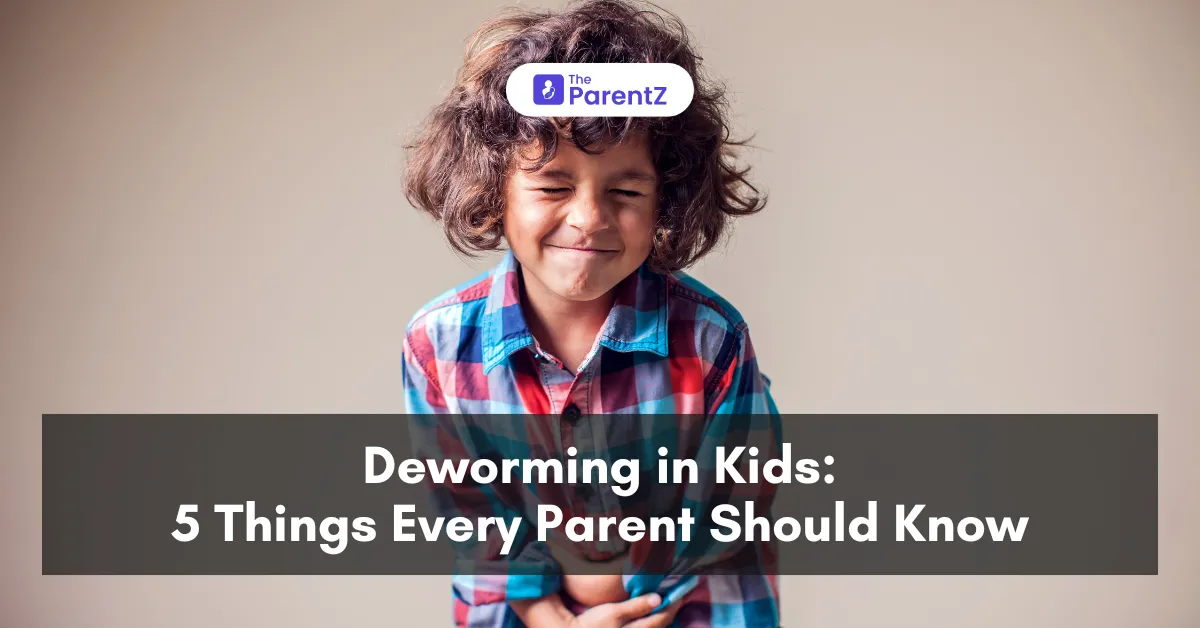Intestinal worms are a very common health concern worldwide.
According to the World Health Organization (WHO), over 1.5 billion people—nearly 24 percent of the global population—are infected with soil-transmitted helminths, the most common type of parasitic worms.
Unfortunately? Kids are the most vulnerable to it.
As parents, it is obvious to be concerned. So what can you actually do? Deworming is a simple yet effective way to keep your little ones healthy.
Read below this article to explore the top five things you need to know about deworming in kids.
The Need for Deworming
Since kids love to explore things by touching, crawling, and putting them directly into their mouths, they are more exposed to worm infections. These parasites eventually enter into their bodies through contaminated food, water, and soil, and also due to bare feet walking on infected ground.
Since worms feed on essential nutrients, it can lead to fatigue, malnutrition, and weak immunity. Here are some of the common signs that indicate worm infections in kids:
- Frequent stomach aches or bloating
- Loss of appetite or sudden cravings
- Weight loss or slow growth
- Itchy bottom, particularly during night
- Persistent coughing
How Often Should Kids Be Dewormed?
One of the most common questions parents ask is, How often should you deworm your child?
The answer depends on where you live, hygiene practices, and exposure to risk factors including pets, soil, and unhygienic water sources. WHO, however, recommends deworming children every 6 months, especially in high-risk areas.
Also, if your child frequently plays outside, has pets, or shows symptoms of worm infections, the pediatrician might recommend more frequent deworming.
Deworming is usually recommended starting from the age of 2 years. It may, however, be recommended earlier if there are signs of infection.
Usually, deworming is done using a single-dose medication. However, make sure to consult your pediatrician before administering any deworming medicine.
Which Deworming Medications Are Safe for Kids?
Deworming is usually a quick and painless process, and the most commonly prescribed medications for children include albendazole, which is used as a deworming medication effective against roundworms, hookworms, and whipworms, and mebendazole, another effective option that has a similar working to albendazole.
Both are usually given as a single chewable tablet or liquid syrup. These medicines actually work by starving the worms of glucose and eventually killing them. In a few days, these worms are flushed out naturally through stool.
The best thing is—these medications are generally safe and cause minimal side effects. However, some kids may experience mild nausea, dizziness, or diarrhea. These symptoms, however, go away quickly.
Can Home Remedies Replace Deworming?
While natural remedies can support gut health, they cannot replace medical deworming treatments.
You can, however, add certain foods to your child’s diet to keep worms away. These foods include pumpkin seeds, garlic, carrots, and papaya that are beneficial for improving gut health.
Even though these foods are great for digestion, remember—they do not kill worms entirely.
Tips to Prevent Worm Infections in Kids
The truth is—prevention is always better than cure.
Therefore, it's essential to teach kids good hygiene habits that can significantly reduce the risk of worm infections.
By regular handwashing after playing outside, using the toilet, and before eating, trimming their nails short, eating properly washed fruits and vegetables, and drinking only clean and filtered water, you can actually reduce the risk of worm infections and keep your child healthy.
Takeaway
In conclusion, regular deworming helps boost immunity, improve digestion, and better nutrient absorption in kids. So you can make sure your kids grow up strong and healthy.
It is best to consult your pediatrician if you’re unsure about when or how to deworm your child. It is usually a one-time treatment every six months that can significantly make a big difference in ensuring your little one’s overall health.







